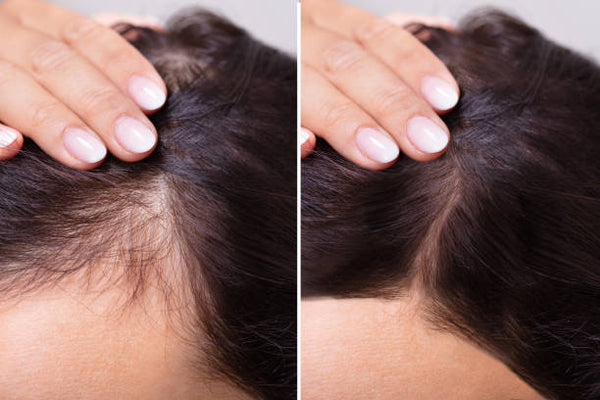Hair loss is a common concern that affects millions worldwide, causing distress and impacting self-esteem. In this comprehensive guide, we delve into the intricacies of hair loss treatment, exploring its underlying causes, various types, and effective solutions. Whether you're seeking natural remedies, considering medical interventions, or contemplating lifestyle changes, this article equips you with the knowledge to address hair loss effectively.
Understanding Hair Loss

Hair loss, medically known as alopecia, manifests in various forms and affects individuals of all ages and genders. While genetics often play a significant role, other factors such as hormonal imbalances, medical conditions, and lifestyle choices can contribute to hair thinning and baldness.
Types of Hair Loss
- Androgenetic Alopecia (Male and Female Pattern Baldness): The most common form of hair loss, characterized by a hereditary predisposition and hormonal influences.
- Telogen Effluvium: Temporary hair shedding triggered by stress, illness, or hormonal changes.
- Alopecia Areata: An autoimmune disorder resulting in patchy hair loss, often linked to underlying immune system dysfunction.
- Other Types of Hair Loss: Traction Alopecia, Alopecia Totalis, Alopecia Universalis, etc.
Natural Remedies for Hair Loss

Harnessing the power of nature, natural remedies offer promising solutions for combating hair loss. From scalp massage techniques to nutritional supplements and herbal remedies, discover holistic approaches to promote hair growth and improve scalp health.
Medical Interventions for Hair Loss
When natural remedies fall short, medical interventions provide advanced solutions for addressing hair loss. Explore options such as topical minoxidil, oral finasteride, platelet-rich plasma (PRP) therapy, and hair transplant surgery, each tailored to individual needs and preferences.
Lifestyle Change and Habits

Simple lifestyle modifications can make a significant difference in managing and preventing hair loss. From maintaining a balanced diet to practicing stress management techniques and adopting proper hair care practices, small changes can yield significant improvements in hair health.
Seeking Professional Advice
For those experiencing significant hair loss or seeking personalized treatment plans, consulting a dermatologist or trichologist is essential. Professional evaluation and guidance ensure targeted interventions and optimal outcomes tailored to individual needs.
Final Thoughts
Hair loss treatment encompasses a multifaceted approach, addressing its diverse causes and symptoms through natural remedies, medical interventions, and lifestyle modifications. By understanding the underlying factors contributing to hair loss and exploring tailored treatment options, individuals can reclaim confidence and restore hair health effectively.

